Skip to main content
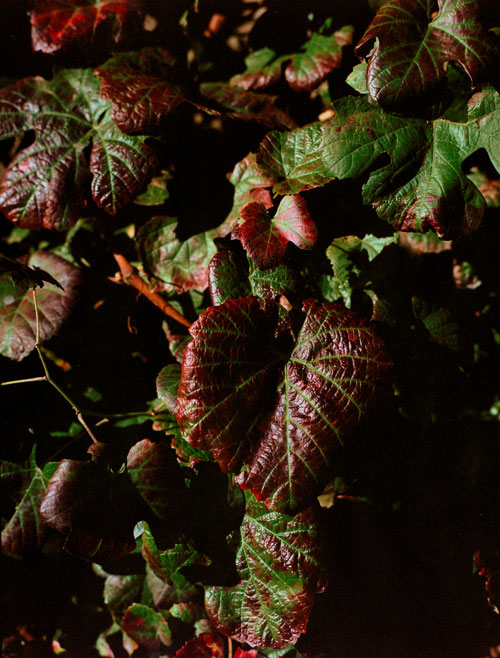
We are firmly committed to maintaining a proactive approach to sustainability throughout every step of the winemaking process. Our policy is to constantly monitor energy consumption with the intention of refining our processes and the products we use in order to achieve the ultimate goal of reducing our carbon footprint.
Heavy investment in solar panels has helped us reduce our reliance on fossil fuels. As we continue to reduce our CO2 emissions going forward we aim to source our energy responsibly by using as many renewables as possible.
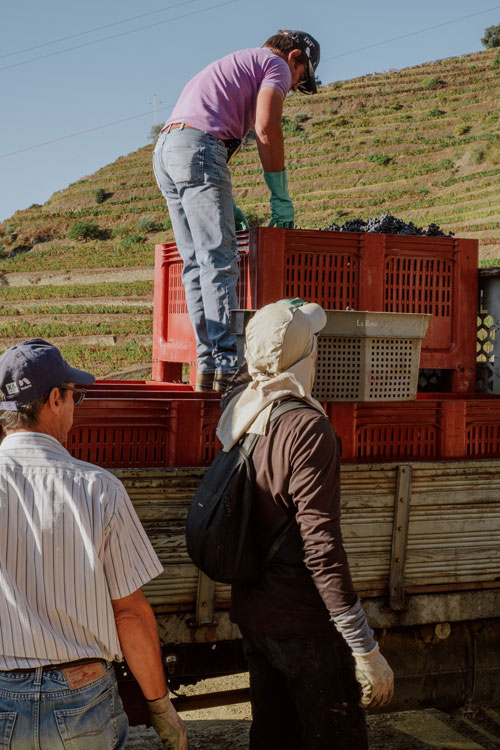
In recent years upgrades to our winemaking facilities have significantly improved insulation. Our efficiencies have dramatically improved with reduced heat loss during the winter. More importantly, we are also less reliant on our cooling systems over the summer months which enables us to have fewer losses through evaporation.
Throughout our warehouses we transfer the wine using only gravity where possible. By avoiding the use of pumps, we are able to save a significant amount of energy thus reducing our CO2 emissions.
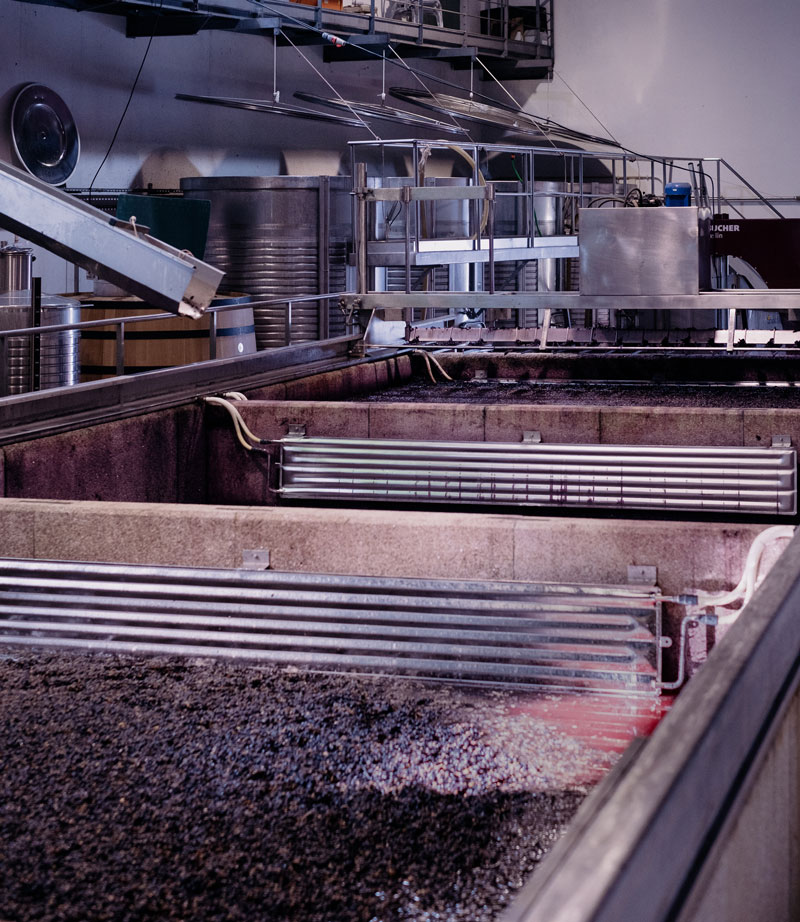
We take regular leaf analyses in May and, in general, we have to make nutritional amendments for potassium and nitrogen. We replenish nitrogen in the soil in the soil by sowing and mulching the cover crop clover, a nitrogen fixing legume.
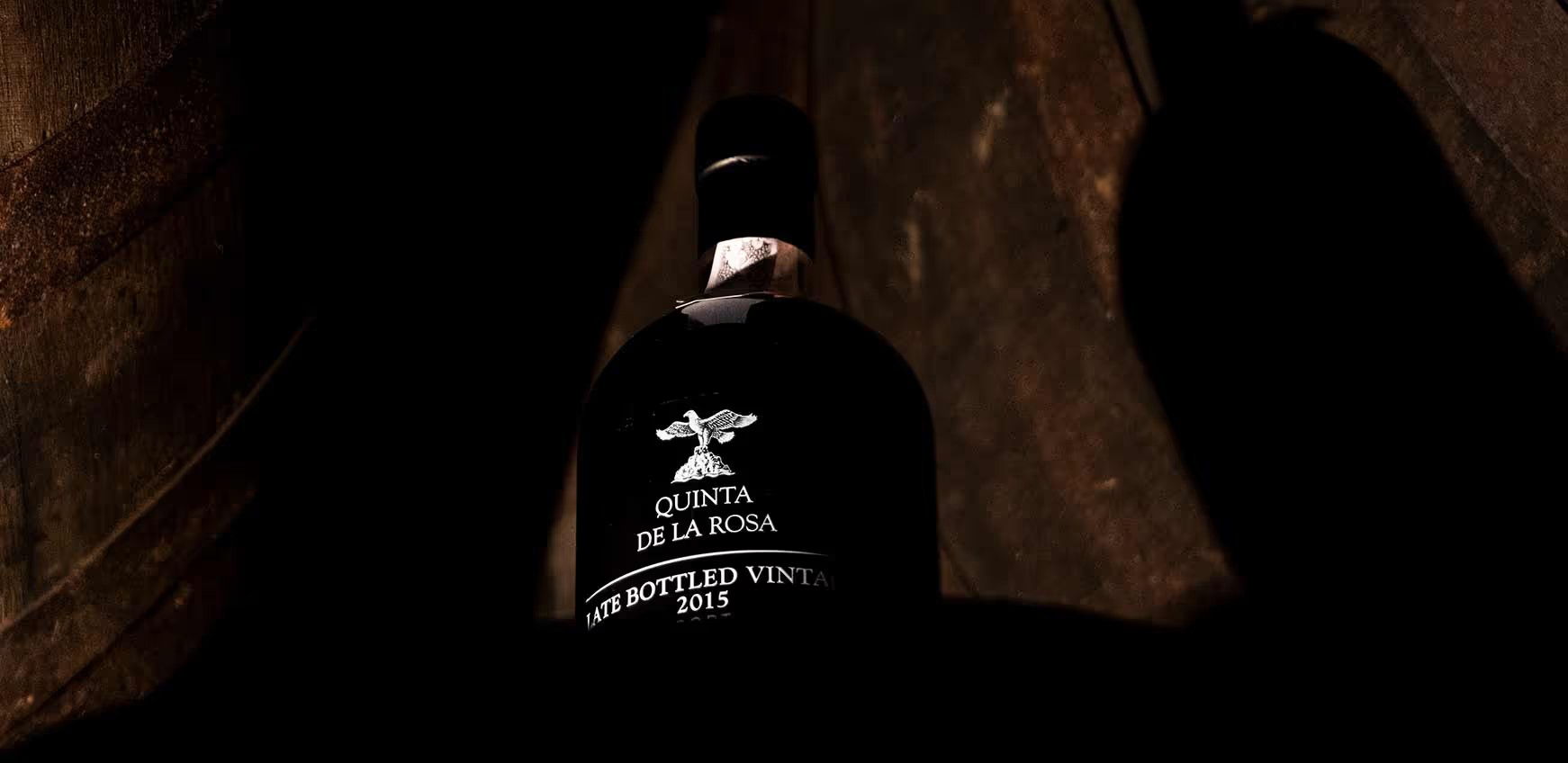
The pressed grape skins and stalks are sold locally and are used in distilling as well as the production of fertiliser which is then used in our vineyards.
We are constantly looking for new ways to reduce our water consumption in the wineries. By using high pressure washers, as well as water saving devices such as trigger-operated spray guns, we are able to drastically reduce the amount of water we use. We continue to monitor our usage in the hope that we can make further savings in the future.
We are constantly revaluating both how we source our packaging material as well as the packaging methods that we use. For example, we are firm believers in using recycled cardboard for our boxes as well as using natural corks in our bottles. We are currently assessing our use of plastic in the hope that we can significantly reduce its use in transport and shipping.
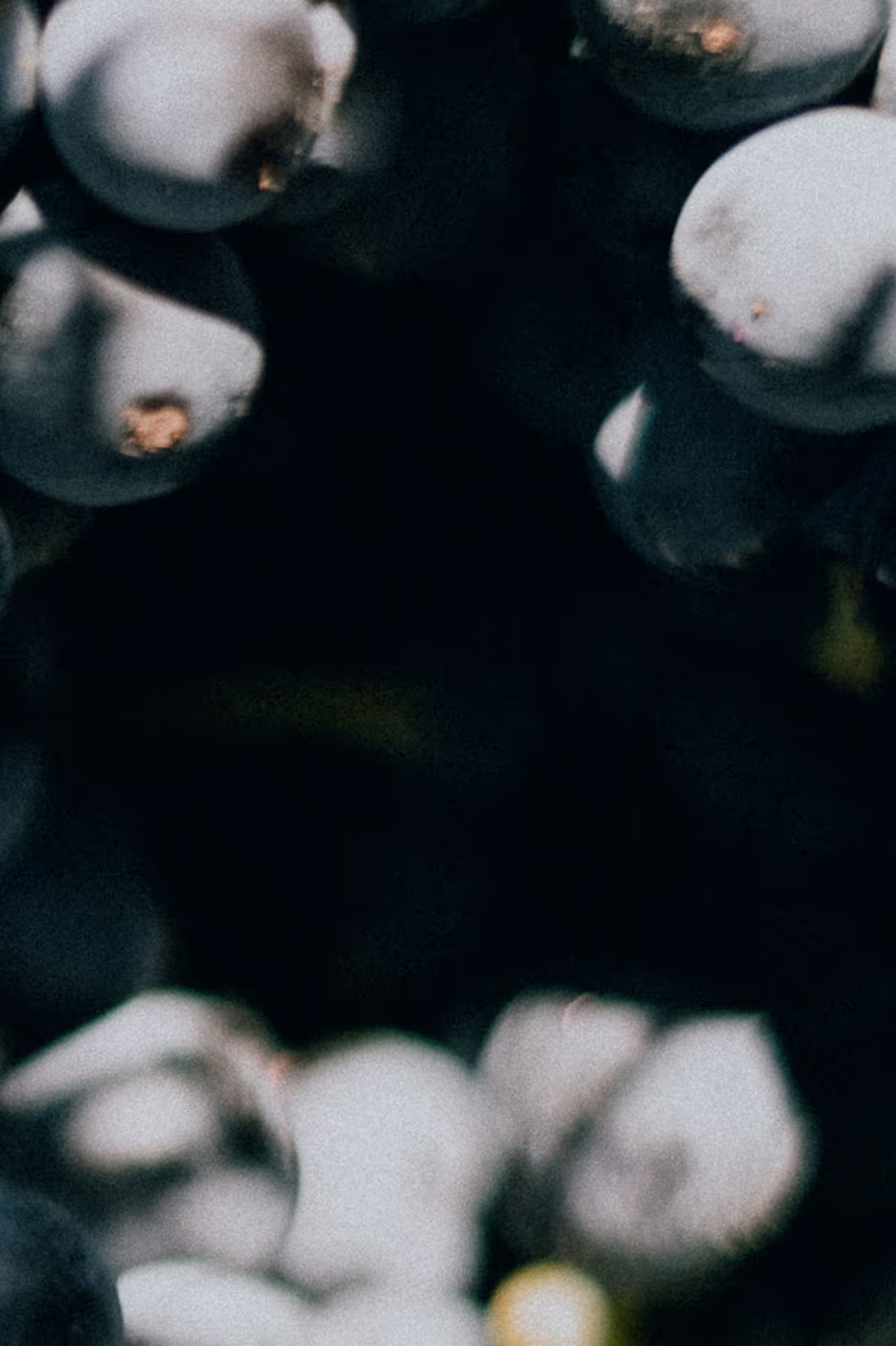
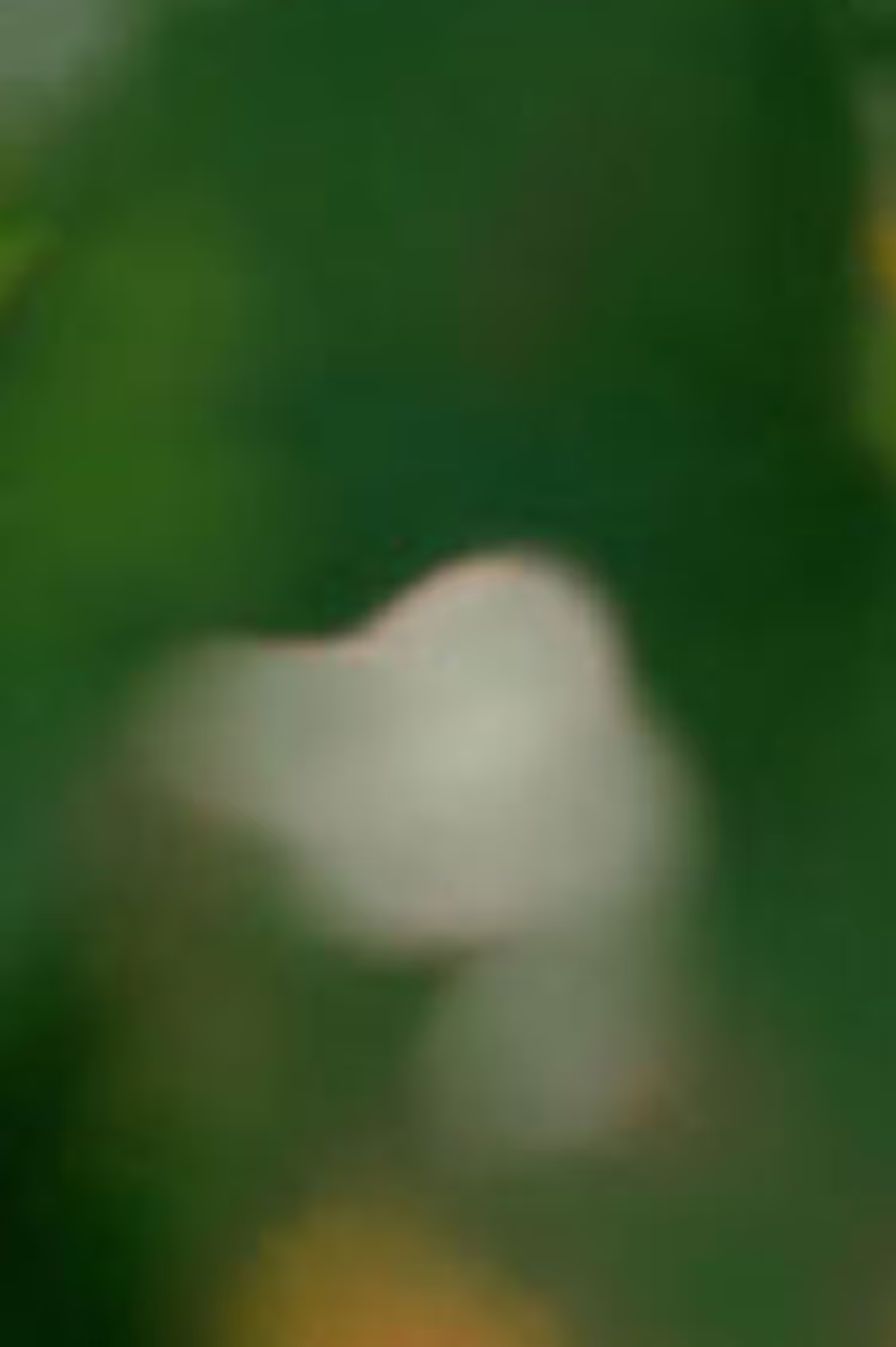
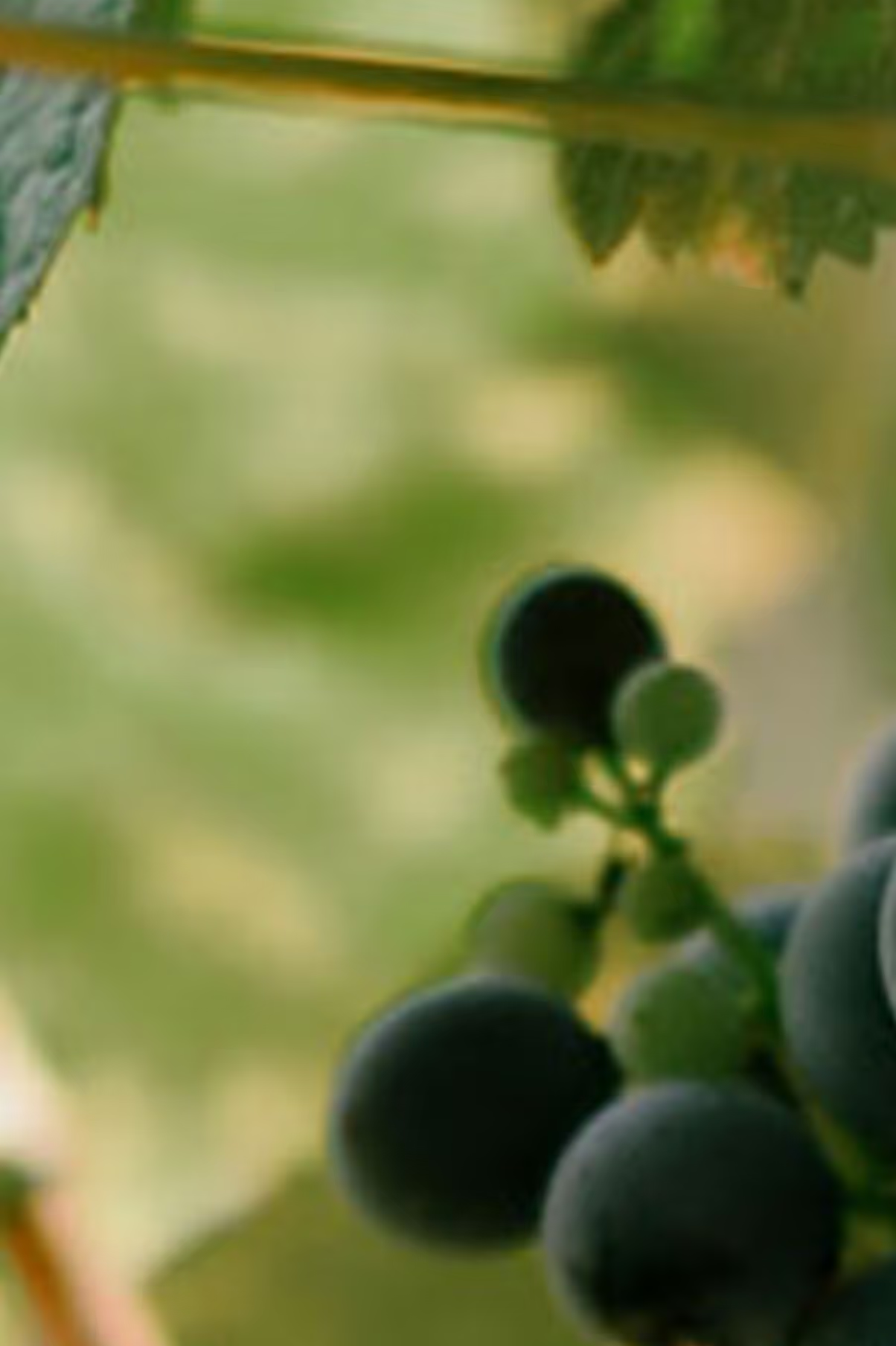
At Quinta de la Rosa we are firmly committed to sustainable farming practices in order to protect the environment and ensure the longevity of wine and port production in the Douro Valley. Our approach is to optimise the vineyard's natural balance by encouraging a biodiversity which reduces the need for pesticides, promotes soil health, guarantees the quality of the wine and is at the same time economically viable. Our aim is to grow vines with as little interference as possible so we can produce wines that express the distinct and unique qualities of the Douro Valley.
Matching the correct vines to the soil type and location is essential to sustainable viticulture as healthy, strong, and well-balanced vines are less likely to succumb to disease pressure and attack from insects. Among others this involves: choosing the most suitable rootstock and cultivar for a given vineyard, ensuring the best available bench grafts are sourced from well-respected nurseries, and considering the spacing and the trellis type of the vines. In recent years, we have seen a return to more traditional pruning techniques, most notably the use of Guyot pruning in place of Cordon as we have found that it offers better protection for the grapes from the harsh Douro elements. We have also been reducing the space in between vines down to 0.9m as it a natural way of enhancing concentration and fruit quality.

Canopy management techniques such as suckering, leaf removal and shoot positioning optimise the ripening conditions of the grapes and helps us achieve balanced wines. The ratio of leaf to fruit is key as excessive shading leads to poor fruit ripening whilst too much sun exposure, especially in hot climates such as the Douro Valley, leads to burnt fruit and poor colour development. A major benefit of well managed canopies is improved air circulation as it reduces the incidence of diseases, such as Botrytis bunch rot and Powdery Mildew, and helps us further reduce need for pesticides.
Each winter we seed our vineyard rows with a cover crop of grasses and clover which grows throughout the spring and dies back in the summer. This prevents undesirable weed growth and benefits our soils by improving the soil structure and decreasing the risk of erosion. We mow it twice a year, in March and at the end of July, in order to minimise the competition for water and nutrients needed by the growing vines. The mulched cover crop adds essential nutrients such as nitrogen and organic matter back into the soil, and improves the soil's moisture content. The cover crops, much like the carefully cultivated natural vegetation found throughout our vineyards, protects biodiversity in the Douro, and helps floras and faunas to flourish.

Although our goal is to prevent nutrient deficiencies from happening in the first place, there are times when we need to actively ensure the vines’ needs are met. We determine whether we need to fertilise by observing visual symptoms of nutrient deficiency, such as yellowing of leaves associated with nitrogen deficiency, and by taking soil and tissue (leaf) analyses.
We take regular leaf analyses in May and, in general, we have to make nutritional amendments for potassium and nitrogen. We replenish nitrogen in the soil in the soil by sowing and mulching the cover crop clover, a nitrogen fixing legume.
Soil testing is important as it gives an indication of the overall balance of major nutrients and determines the soil pH, something that is essential before new planting as well as in established vineyards.

All our vineyards are dry-farmed except during the establishment of a new plantation of young vines where we use a carefully monitored drip irrigation system. We are constantly experimenting with new techniques to ensure we use as little water as possible.
We practice minimal till which reduces soil compaction and erosion, conserves moisture, and minimises fuel consumption and therefore pollution. We only plough when we need to fertilize the vineyard, which on average is once every three years. In our oldest vineyard, Vale do Inferno, we still use the traditional method of ploughing with mules or small horses.
In mountain viticulture, such as at La Rosa, erosion control isa constant challenge. We are dedicated to maintaining and even expanding the famed dry stoned walls found in the Douro. In our more recent vineyard developments, we have used a system of narrower terraces with reduced inclination as rain is able to percolate into the soil more easily which minimises top-soil erosion.
On the slopes, native plants are left to grow and their roots, much like those of the cover crop, help maintain the structure of the soil. Every autumn, we also ensure that our drainage systems are well maintained and functioning before the winter and spring rains arrive.
Due to the extreme climate of the Douro Valley our vineyards are not organic. However, that is not to say that they are not greatly influenced by its practice. After extensive experimentation, we have adopted a management strategy that is largely based on a preventative approach when it comes to preventing pests and disease. We are very strict about avoiding unnecessary spraying.
Our vineyards are certified as sustainable by ADVID. We follow a specific code of procedures which encourages biodiversity, reduces pesticide use and respects the environment. ADVID tightly controls the products we use and makes regular visits to La Rosa to ensure we keep up to date with approved practices and recent research.
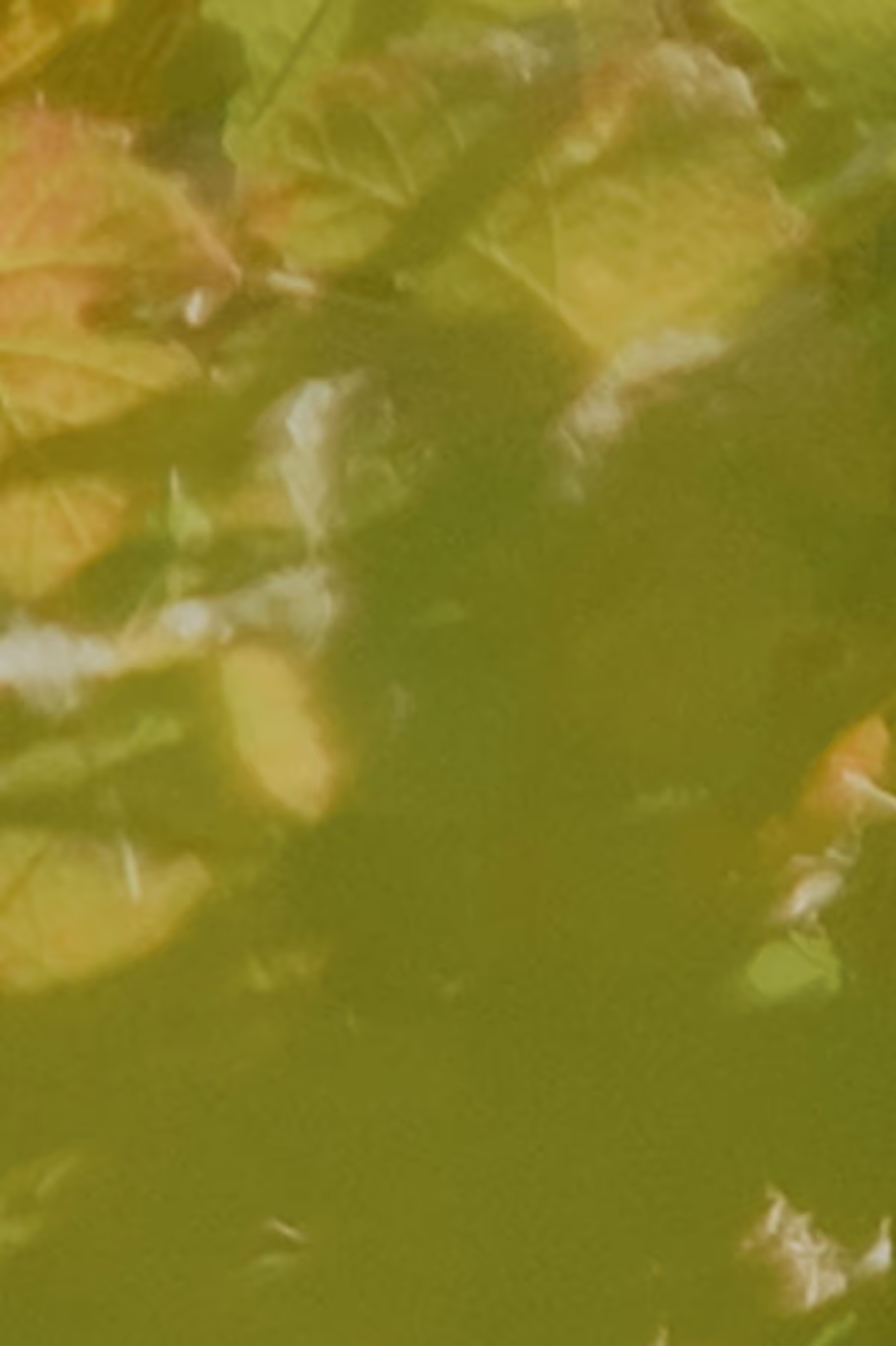
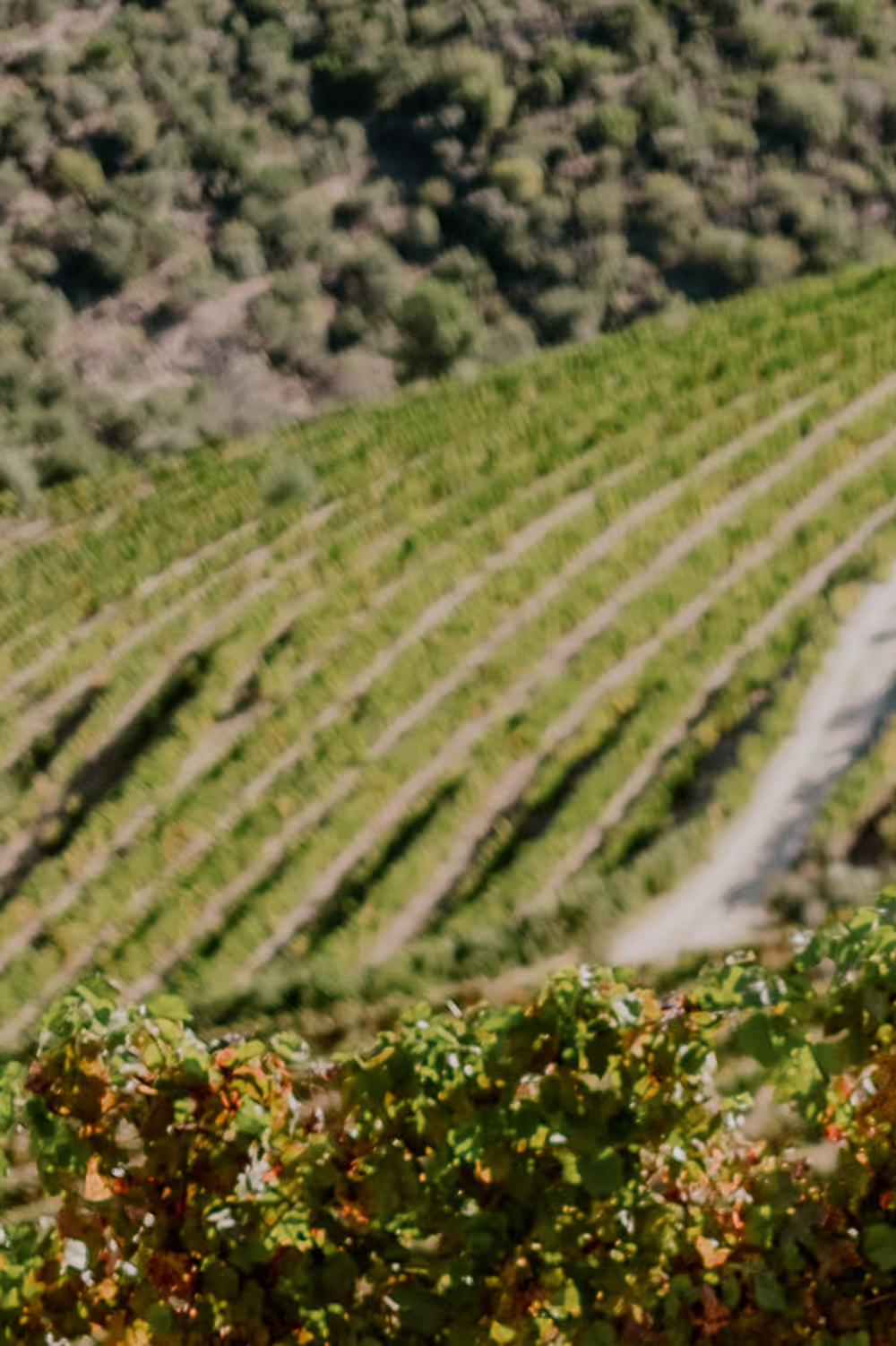
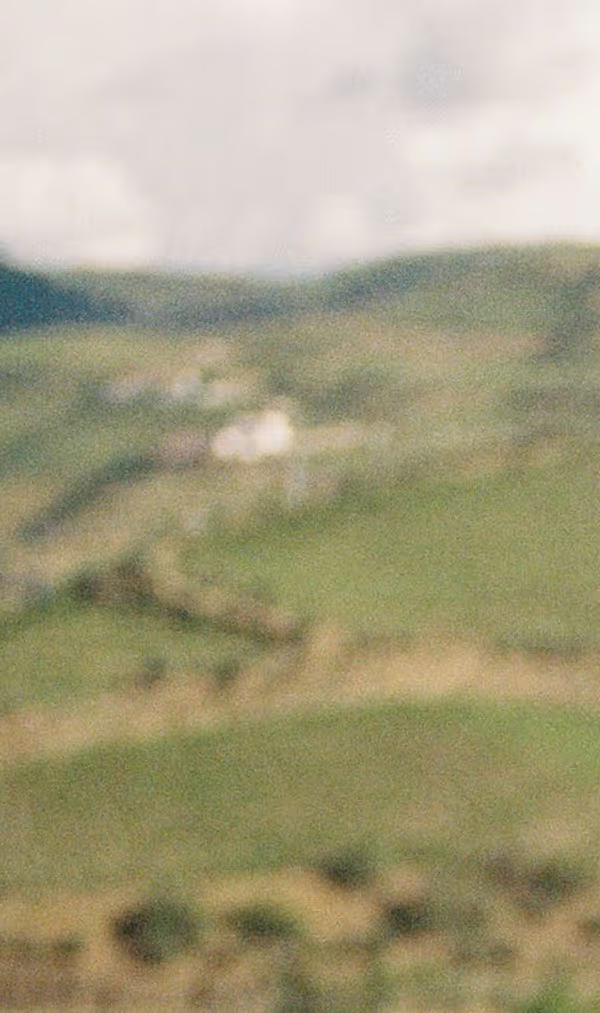
Much like our commitment to sustainable farming and winemaking we are dedicated to maintaining the highest levels of sustainable tourism. We recognise how important it is to look after the planet for the future generations. As such we are constantly striving to improve our approach to sustainability all the while offering the highest level of service to our guests.
We are cutting down single-use plastic by eliminating the use of plastic water bottles as well as items such as bags, cups, and straws. We have replaced the use of plastic water bottles with reusable glass ones that can be filled up free of charge from our filtered water points found around the winery. We also offer reusable La Rosa water bottles that can be bought at our shop.
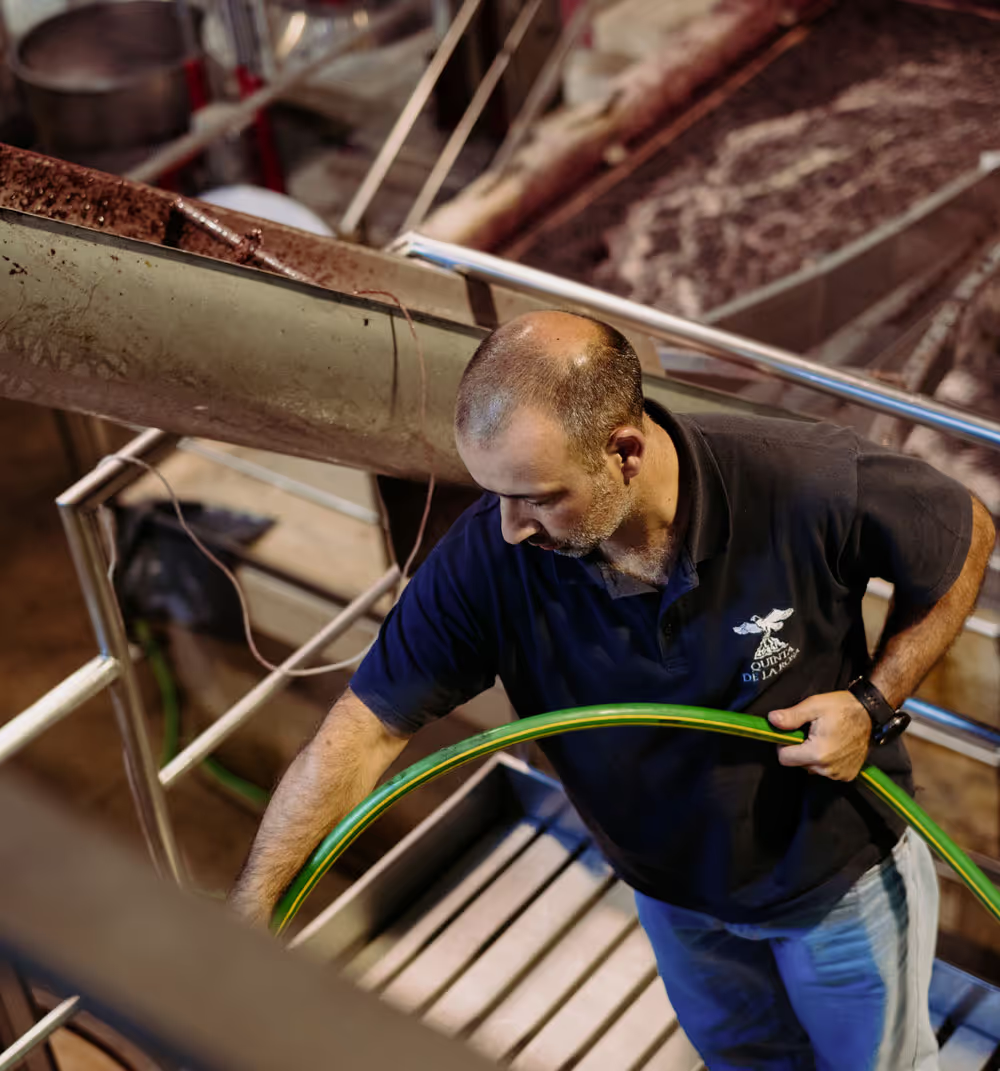
La Rosa currently recycles as much material as possible in accordance with the local council’s regulations. As we use a considerable amount of cardboard and glass we have made special provisions in order to ensure these items are recycled. We are also exploring methods of reducing their use on-site by experimenting with reusable kegs in our restaurants.
By combining smart lighting solutions, such as motion sensors and timers, with LED lighting we have managed to reduce energy use, light pollution, as well as CO2 emissions considerably.

The use of renewable energy sources is extremely important to us. Thanks to our solar panels we are able to get free hot water directly from the sun through thermal heating. They also enable us to reduce our dependency on fossil fuels and reduce our carbon footprint.
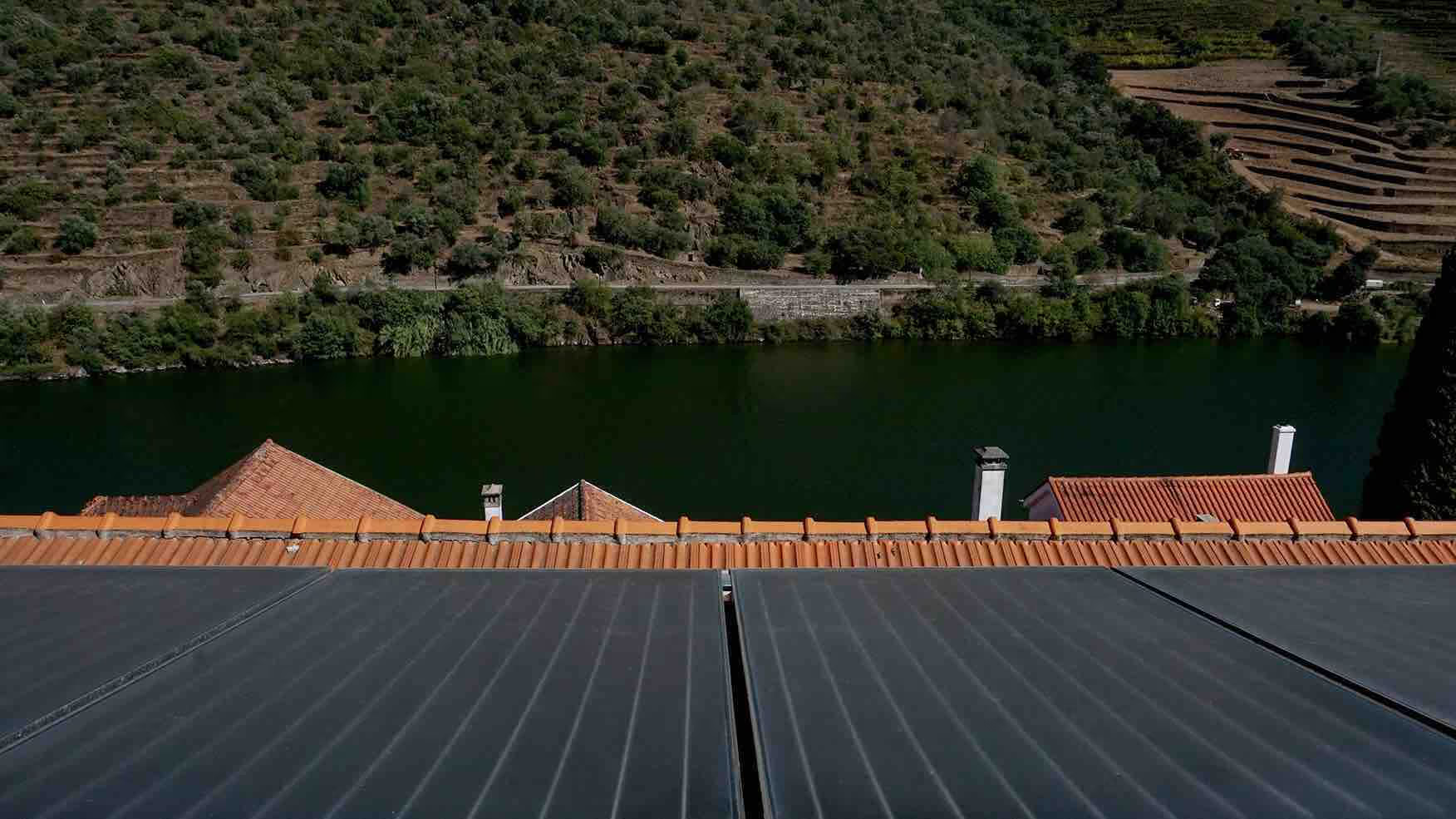
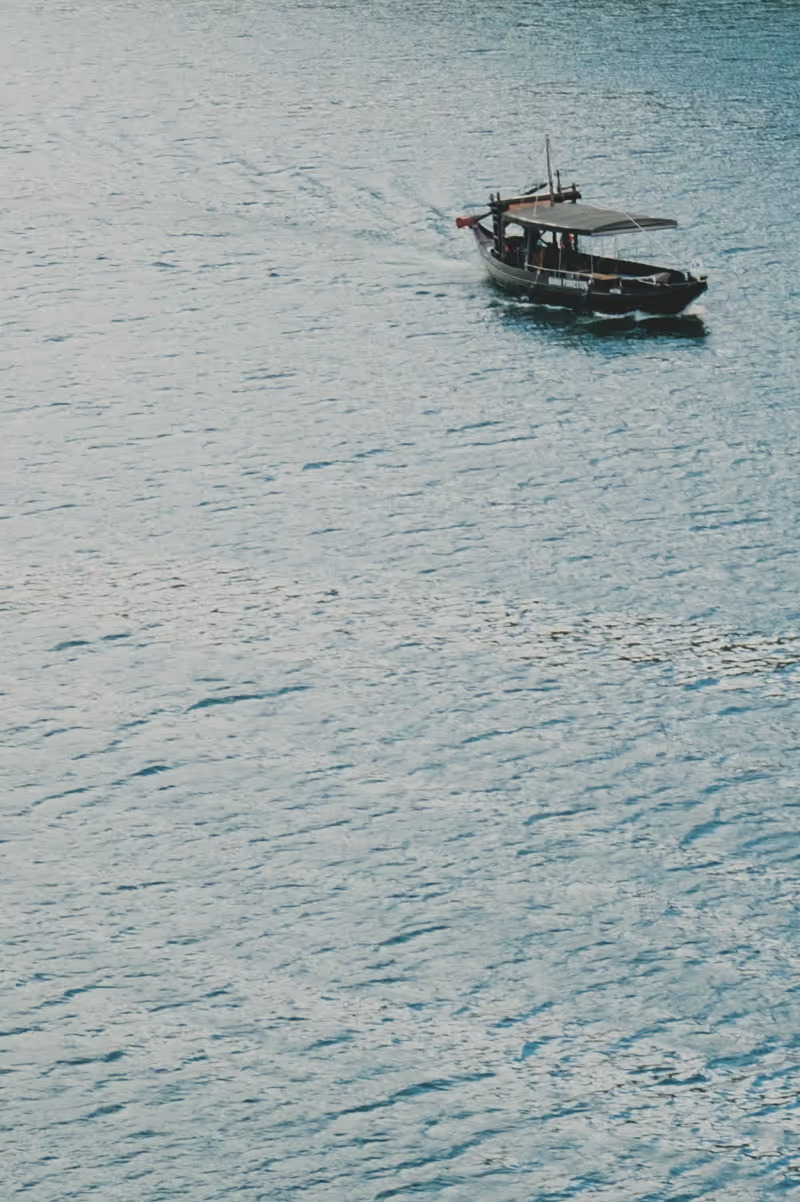
Throughout our hotel and restaurant, we always try to source local ingredients from local suppliers where possible. As well as being a very important way of helping local businesses flourish, we see it as an important step towards reducing our carbon footprint.
Our Paradise vegetable garden is an integral part of Quinta de la Rosa. Planted by Claire nearly 100 years ago, it now supplies Cozinha da Clara with an abundance of delicious fresh fruit and vegetables. Further more, the subsequent organic waste produced by the kitchen is composted and returned to Paradise’s soil – thus completing one of nature’s most important lifecycles.


